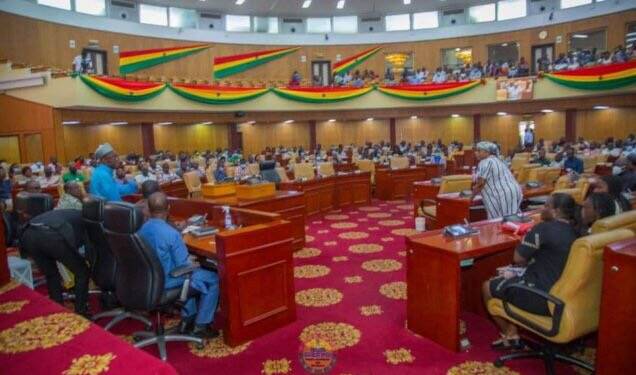The Fees and Charges Miscellaneous Provisions Bill 2022 has received approval from Ghana's parliament.
The decision, according to a Citi News report, will offer legal support to the demand for a 15 percent tax that will be added to government fees and service costs.
Abena Osei-Asare, a deputy finance minister, explained the increase during the bill's second reading in parliament, saying it will ensure that the pricing structure for government services is in accordance with market trends.
It is anticipated that important government services would be subject to the Fees and Charges Miscellaneous Provisions Bill 2022.
These include, among others, birth and death certificates issued by the Birth and Death Registry; car registration and driver's licenses issued by the Driver and Vehicle Licensing Authority (DVLA); passports issued by the Passports Office.
With the Minister of Finance's approval, the fees that will be charged for certain government services will be adjusted annually to reflect the nation's average inflation rate.
Government agencies negotiated with the Ministry of Finance to have their fees approved before the bill was approved. They also made proposals.
The government is of the opinion that the Bill's passing into law will enhance the mobilization of domestic revenue.
Paul Apraku Twum Barimah, the member of parliament for Dormaa East, revealed that sanctions are the only means by which the government can recoup the enormous Ghc 650 million debts of petroleum taxes from the obstinate oil marketing companies. He therefore appealed to Parliament to support the government and the Ghana revenue authority in this endeavor.
He urged the government to work with the Parliamentary Select Committee on Mines and Energy to make sure that these OMCs pay their share of the petroleum taxes. This, he claimed, could be accomplished by summoning them before the committee to respond to inquiries and present a plan for how they would be securing payment for the nation's debts.
He pointed out that taxes are important components or drivers of development and that the government requires a lot of money to finance projects like building roads, schools, and hospitals, among other things.
Paul Twum Barimah added that closing OMC's locations, seizing their assets, and prosecuting their managers and directors would all put more pressure on the company to pay off its debts to the government.




No comments yet
Be the first to share your thoughts!